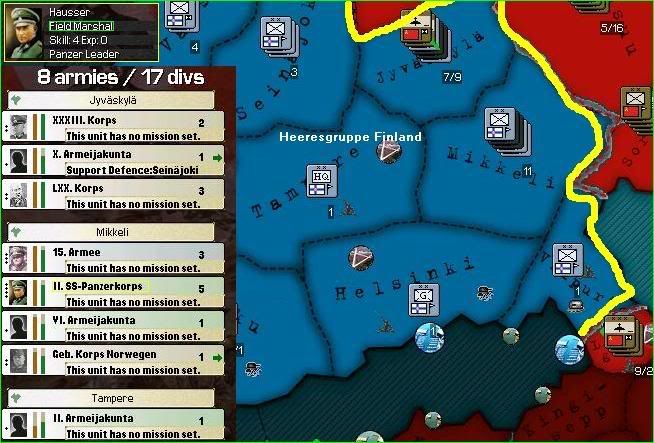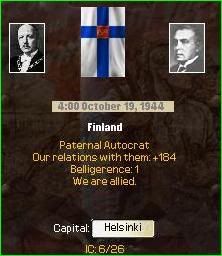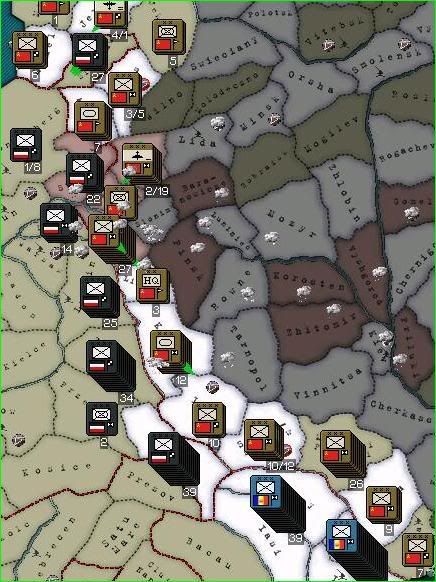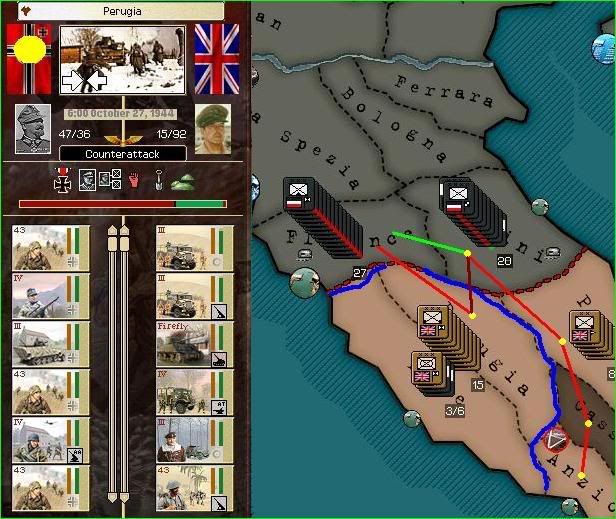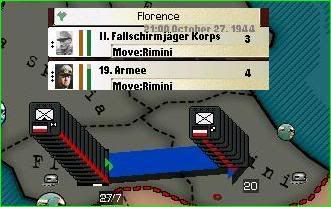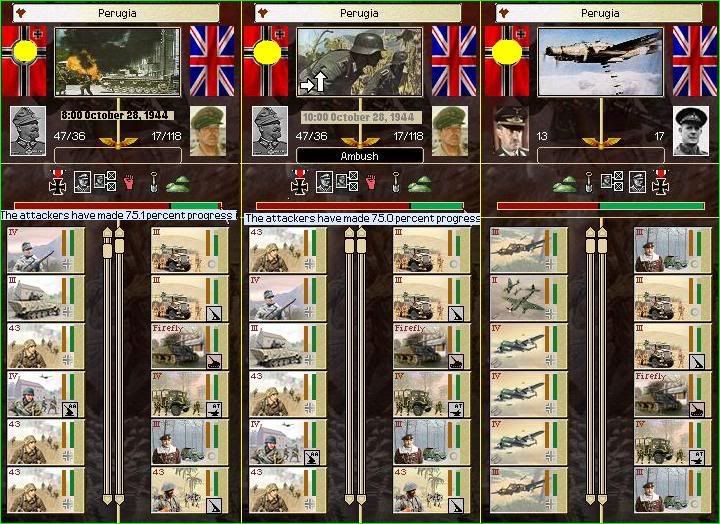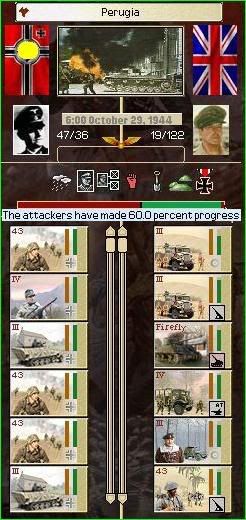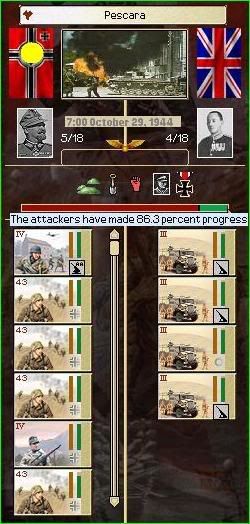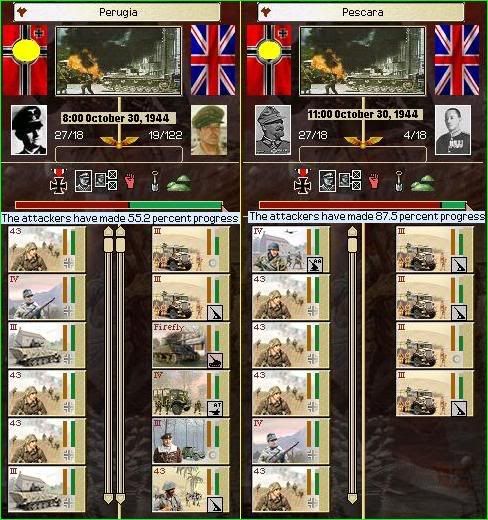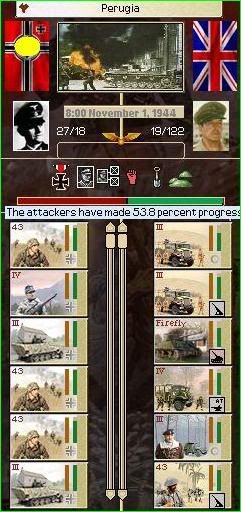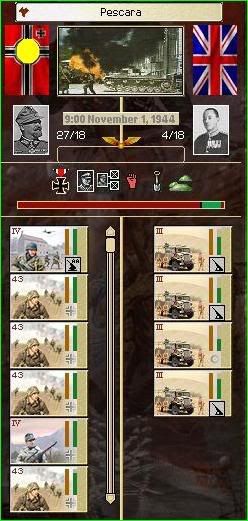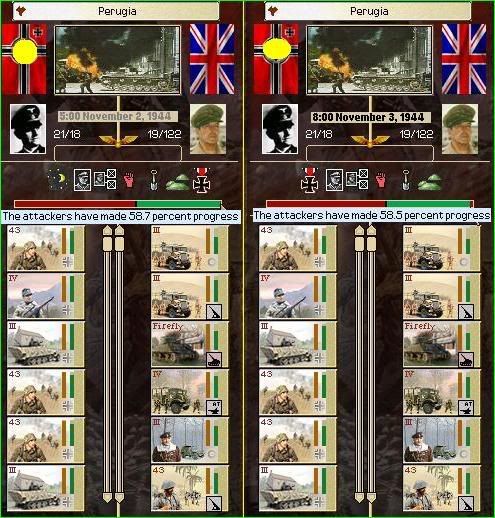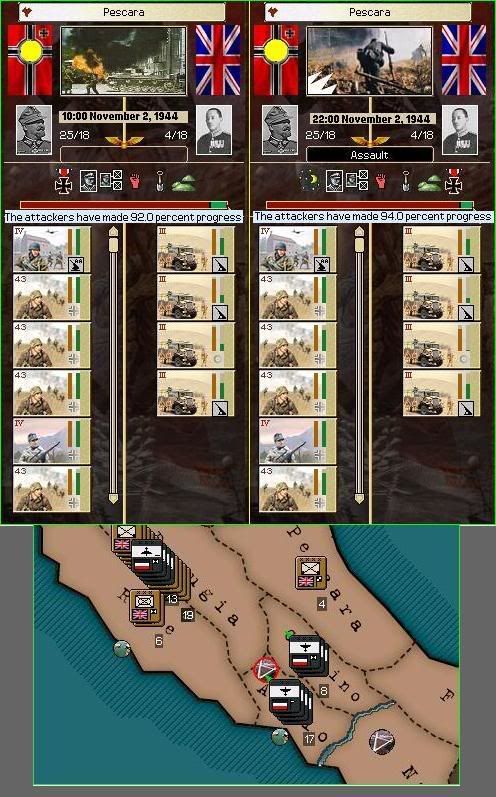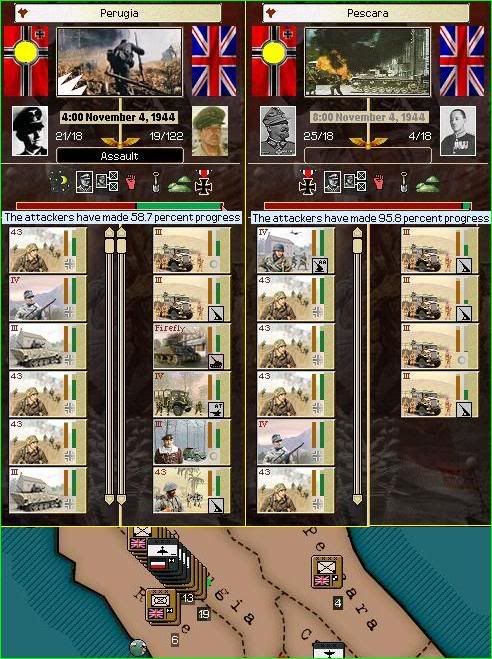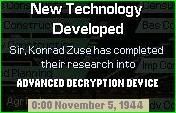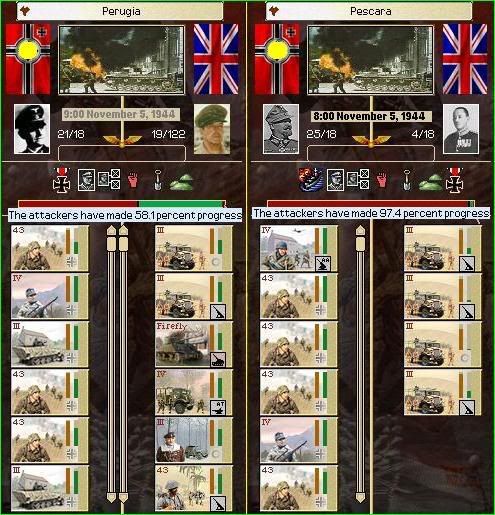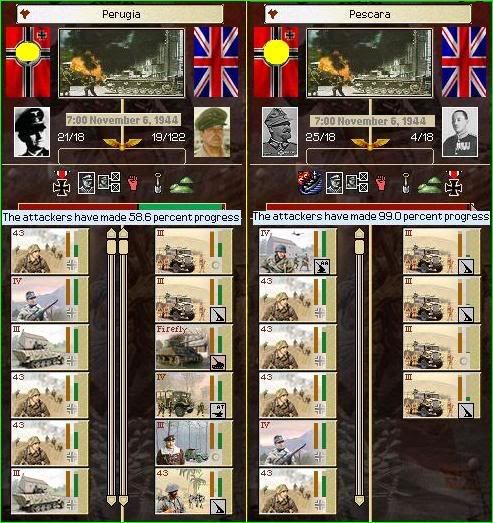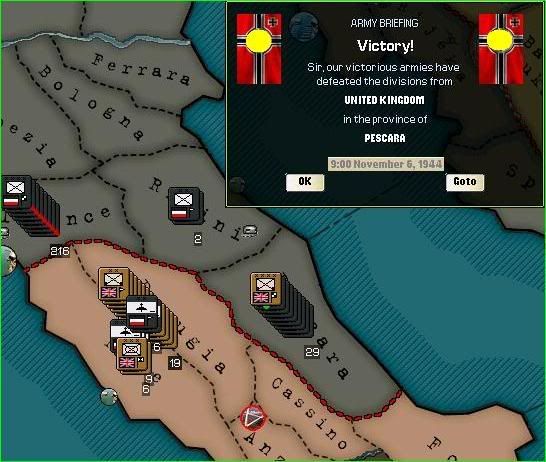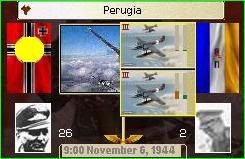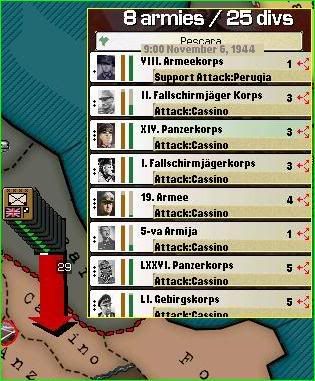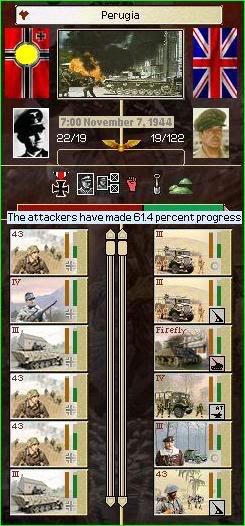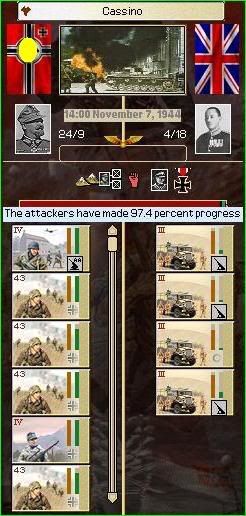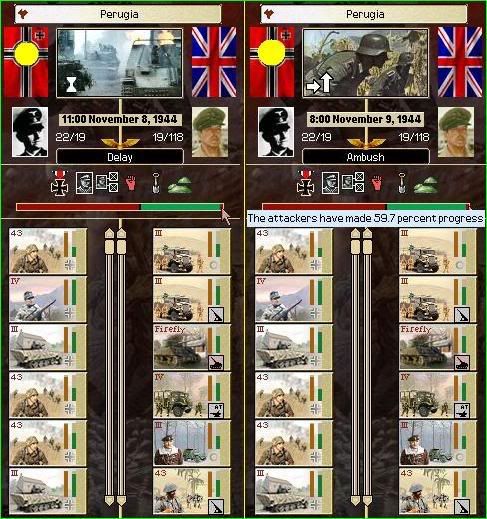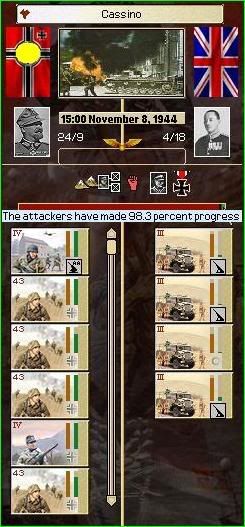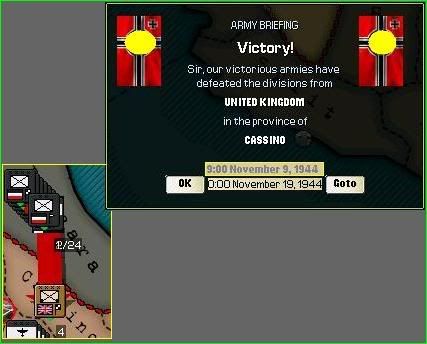Operation Boot shiner
0400 October 19th 1944
Diplomatic Offices, Helsinki, Finland
Finland was not only hard pressed from the Soviets; its factories were shutting down.
To address the problem quickly, von Ribbentrop sent them a gift they would much appreciate.
He would not even ask for anything in return.
0000 October 20th 1944
Eastern Front
Heavy rains and snow were now starting to cover much of East Europe, and it was slowly pushing to the West.
The Soviets thought they would push West as quick as the onset of Winter; after the defeat at Stryj, they could not be more wrong.
0000 October 22nd 1944
Intelligence Department, Berlin, Germany
Kaltenbrunner was handed a nice report.
Germany's manpower would have one less thing to worry about, as new techniques on food production had been finally researched.
He would instruct I.G. Farben to pursue their work further into even more advanced techniques.
0400 October 27th 1944
LXXVI. Panzerkorps Headquarters, Florence, Italy
General Ringel had fifty-four divisions available in Italy, and he was now speaking to the officers of around twenty of them.
"Herr General, I'm sure we all agree that Italy is not best suited for blitzkrieg tactics, but let me argue that your plan - so called "Operation Boot Shiner" will cost us a lot of lives and it is unlikely that we will be able to break the defenses of the British! They lost almost thrice their men at Monte Cassino, and we're in no better position to afford such a risk like they did to capture that pile of rubble. Hills are everywhere, and we have a mix of tanks, infantry and very few equipped for this kind of terrain."
"General Wünnenberg. Let me rephrase it all:
A frontal assault is impossible, and even if we achieve it, the British would counterattack fiercely, even if we have numerical superiority. We must exploit this bonus this way:
Phase one, We and our divisions from Rimini will attack Perugia, not with the aim to capture it, but to put the fifteen divisions there under heavy pressure. I will lead the attack.
Phase two, our divisions from Rimini will withdraw from the attack and I, along with my divisions, will get to Rimini myself while you, general Wünnenberg, will keep the attack on Perugia, albeit with less divisions.
Phase three, I, along with an estimate of twenty-twenty five divisions, attack the weak spot of Pescara. Most importantly!, With their flank being attacked by Wünnenberg, they will not be able to provide any assistance to the eight or so divisions.
Phase four, it starts when the weak spot of Pescara falls to my assault. We will then proceed to Monte Cassino and then retake Anzio. From there, depending upon the situation, we'll decide whether to link with you by attacking Perugia or attacking Rome. The Luftwaffe is providing excellent air cover and is going to bomb our enemy divisions day after day.
Now, Wünnenberg, you said that: Italy is not suited for blitzkrieg, and you're right. But have you got any other brilliant plan to overcome these hilly and hostile lands without ending up in a stalemate and in a bloodshed? This is the quickest way to waste as less lives as possible and encircle the - almost - whole British Army in Italy. Now, it is late and I accept no further questioning. Let the attack commence!"
The others were silent; this "Operation Boot Shiner" sounded quite humorous and inspiring to the German officiers, but they doubted whether it could 'shine' the Boot and throw the British away like they were dust on a shoe. Hills were to be a serious threat to the attacking German forces, now forced to the offensive.
At 0400 Phase One of the operation was launched, and Ringel spearheaded the attack on Perugia with forty-seven divisions. German officiers rightly foresaw that hills and German tanks were proving to be an obstacle, as the odds were favourable enough for the British to launch a counterattack two hours after the start of the battle. And, according to Ringel plans, the odds had to be even worse as soon some of those divisions would head for Rimini, and those in Rimini would withdraw their attack completely.
Seven divisions in Florence started moving in the direction of Rimini.
0800 October 28th 1944
LXXVI. Panzerkorps, Florence, Italy
Ringel's two-days command into the attack of Perugia was achieving little success he was soon to be going to Rimini too, so to execute Phase Two. Some of the best equipped Luftwaffe bombers, in the meanwhile, were busy trying to soften up the defending divisions, but dug-in British soldiers in the hills, even if attacked, were a tough nut to crack
Ringel would be glad that Model had decided not to use the Aircraft in the Eastern front entirely; now many of these squadrons had received sufficient repairs, and some of them were in excellent status too.
October 29th: General Wünnenberg finally took command, and Ringel was busy preparing Phase Two. The British committed two more divisions into Perugia's defense, and this further lowered chances of the Germans not having a hard fight.
0700 October 29th 1944
LXXVI. Panzerkorps, Rimini, Italy
At 0700 on October 29th Phase Two of Operation Boot Shiner, masterminded by Ringel, started. As foreseen by Ringel, with the attack on Perugia the British would leave only barely sufficient defenses in their flanking provinces, and Ringel was going to exploit this knowledge at its fullest.
Only four British divisions were defending Pescara, and few could help them. The divisions from Rimini attacking Perugia now switched direction towards Pescara; now, exactly twenty-seven divisions were attacking Perugia and twenty-seven Pescara: in total, those were the fifty-four divisions under Ringel's control.


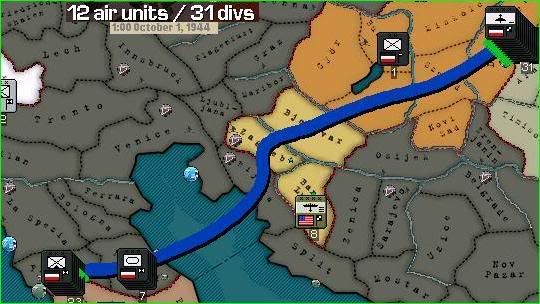
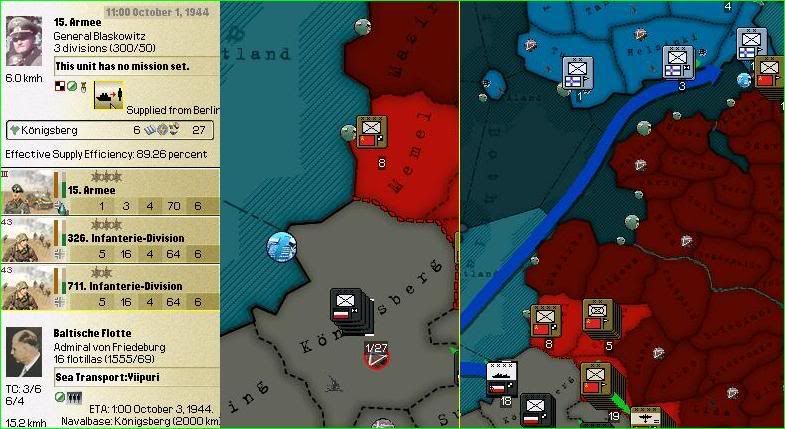
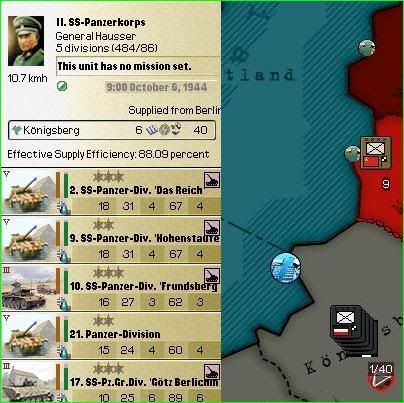
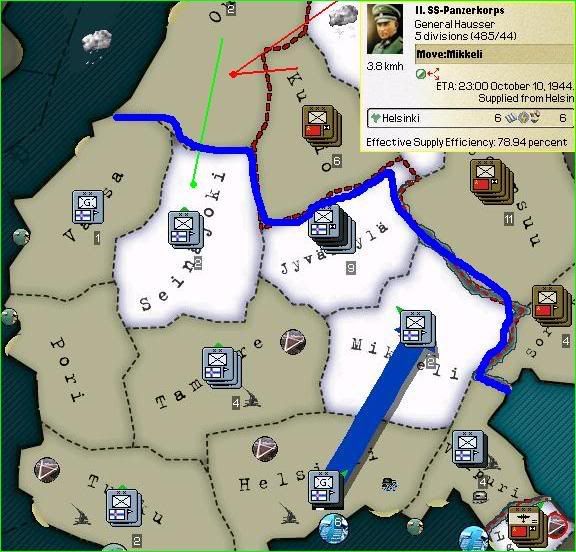
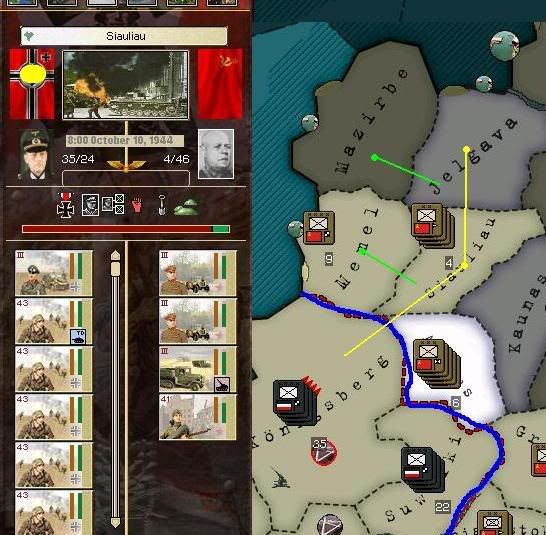
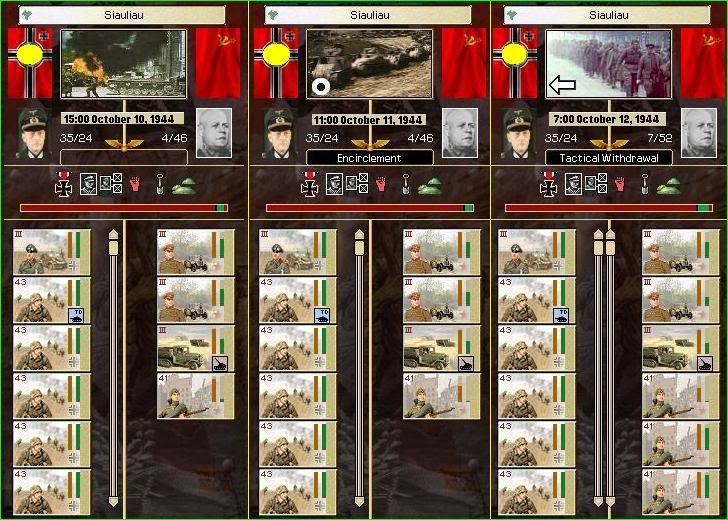
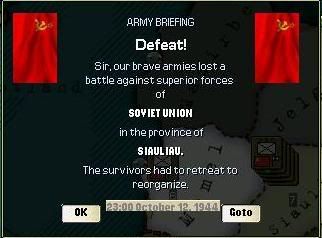
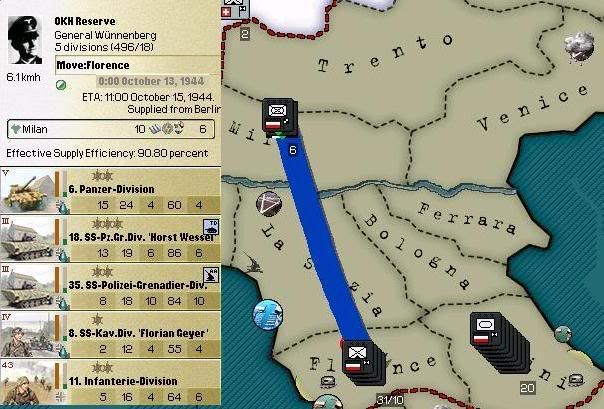
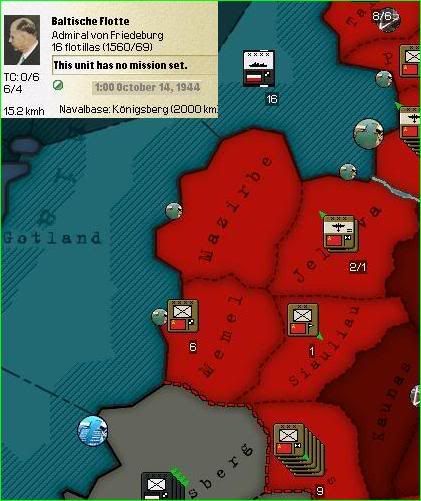
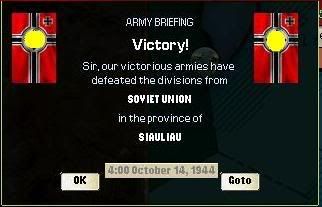
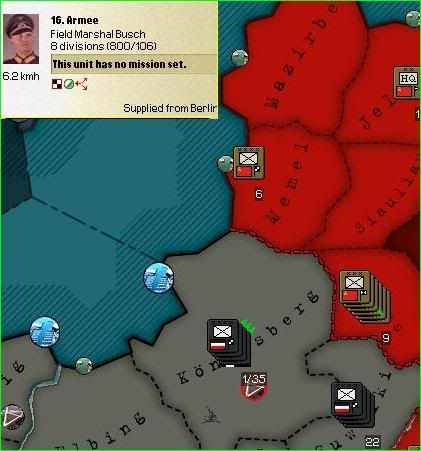
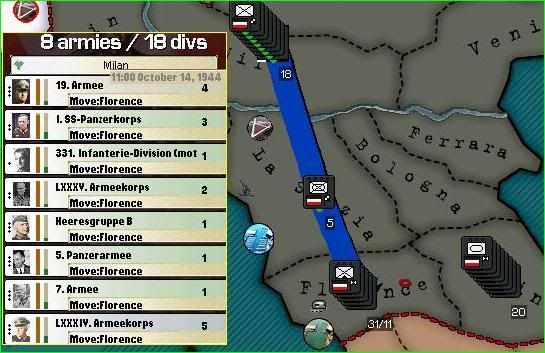
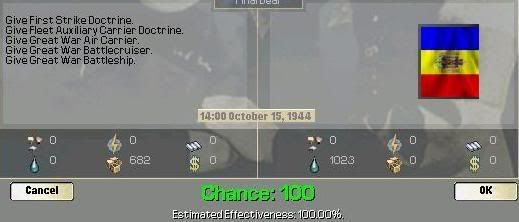
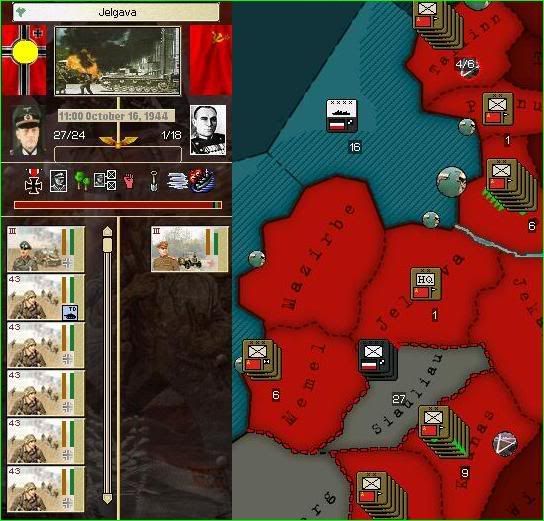
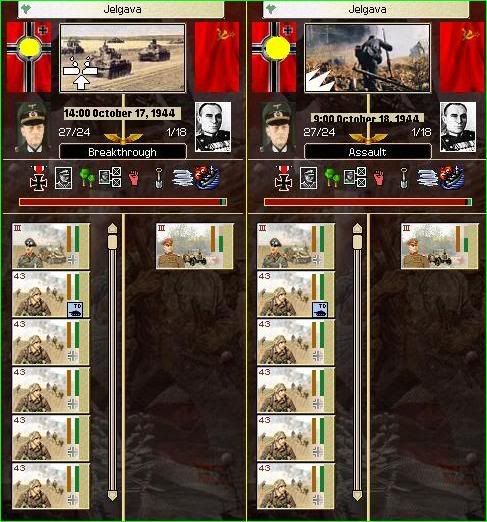
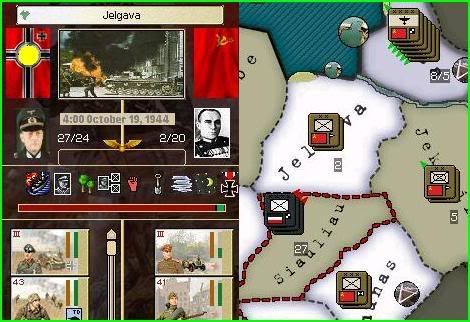
![038-17-Defeat1.jpg]](http://i254.photobucket.com/albums/hh120/DvD-IT/038-17-Defeat1.jpg])
